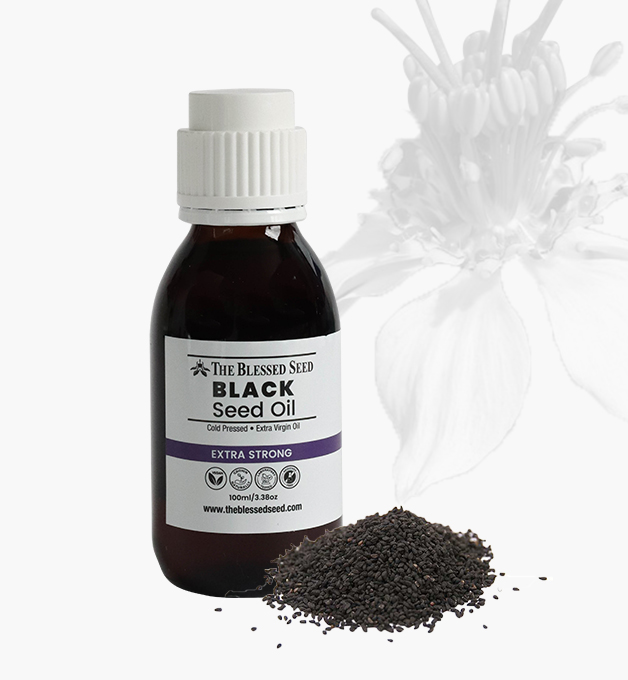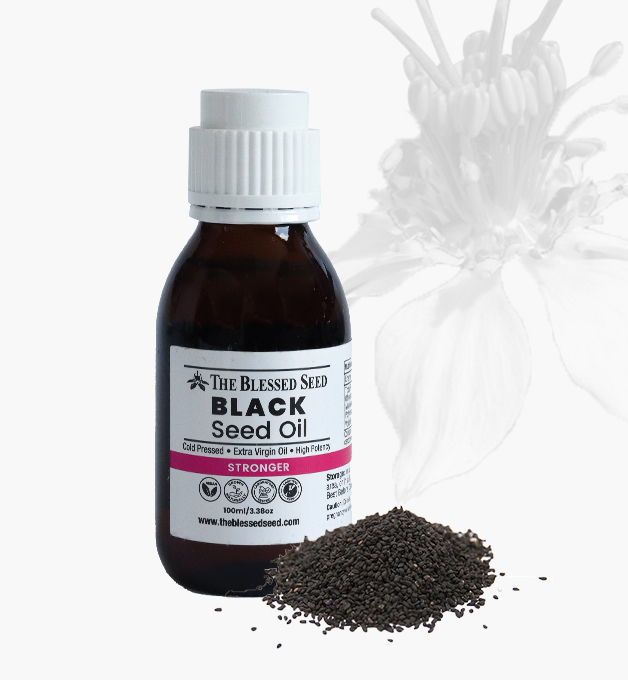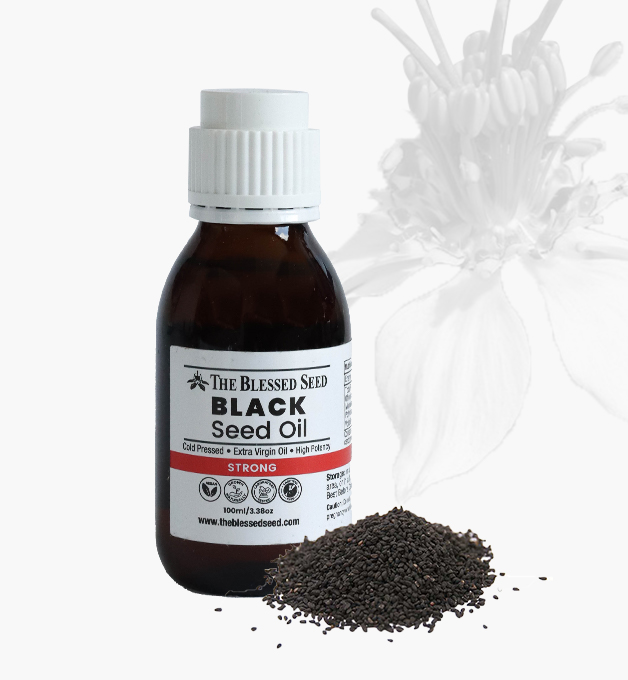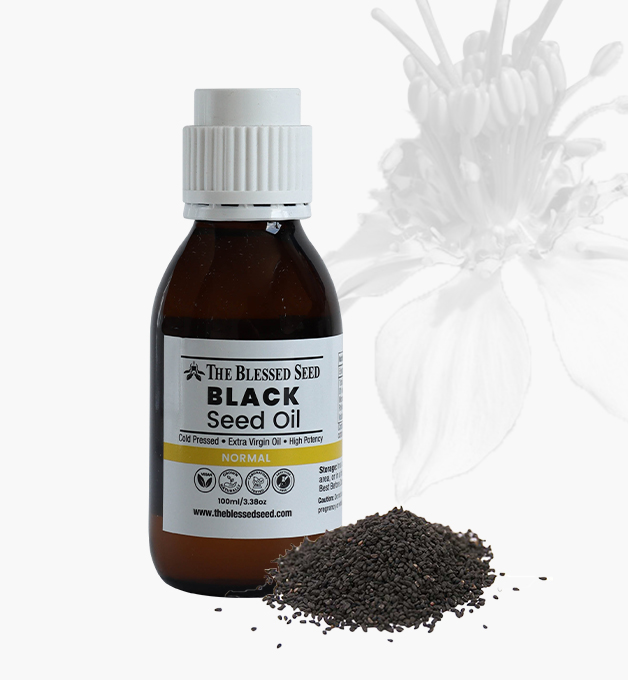Nigella sativa, also known as black cumin, black seed, or kalonji, is an annual flowering plant that is native to southwestern Asia and the Mediterranean region. It has been used for centuries for its medicinal properties and as a spice in cooking.
In recent years, scientific research has been conducted to investigate the potential health benefits of Nigella sativa. Some studies suggest that the seeds contain compounds that may have anti-inflammatory, antioxidant, and immune-boosting effects. For example, they are rich in thymoquinone, which has been shown to have anti-inflammatory and pain-relieving properties.
However, more research is needed to fully understand the effects of Nigella sativa on human health, and many of the findings so far are based on animal studies or small human studies, so it’s important to approach these results with caution.
In conclusion, Nigella sativa has a rich history of use and has been the subject of scientific investigation into its potential health benefits. However, more research is needed to fully understand its effects on human health, and it should be used with caution.
- Asthma: Some studies have found that Nigella sativa oil may help to reduce symptoms of asthma, such as shortness of breath and wheezing.
- Diabetes: Nigella sativa has been shown to have antidiabetic effects in animal studies, and some human studies have found that it may help to lower blood sugar levels in people with type 2 diabetes.
- High blood pressure: Some animal studies have found that Nigella sativa may help to lower blood pressure, but more research is needed to confirm this in humans.
- Cancer: There is some evidence to suggest that Nigella sativa may have anti-cancer effects, but more research is needed to understand how it might work and its potential benefits.
- Skin health: Nigella sativa oil has been used for centuries as a topical treatment for skin conditions, and some studies have found that it may have antimicrobial and anti-inflammatory effects that could be beneficial for the skin.
- Digestive health: Some studies have found that Nigella sativa may have antispasmodic and carminative effects, which could help to relieve digestive symptoms such as abdominal pain, bloating, and gas.
- Immune system: Nigella sativa has been shown to have immune-boosting properties in animal studies, and some human studies have found that it may help to improve the function of the immune system.
- Cardiovascular health: Nigella sativa has been shown to have antioxidant and anti-inflammatory effects that could be beneficial for cardiovascular health. Some studies have also found that it may help to lower cholesterol levels and reduce the risk of heart disease.
- Brain health: Nigella sativa has been shown to have neuroprotective effects in animal studies, and some human studies have found that it may help to improve memory and cognitive function.
- Pain relief: Nigella sativa has been shown to have pain-relieving properties in animal studies, and some human studies have found that it may help to reduce the severity of headaches, menstrual cramps, and other types of pain.
- Anti-inflammatory: Nigella sativa has been shown to have anti-inflammatory effects in various animal and human studies, which could be beneficial for conditions such as arthritis, inflammatory bowel disease, and others.
- Antioxidant: Nigella sativa contains antioxidants, which can help to protect cells from damage caused by free radicals and oxidative stress. This could be beneficial for a variety of health conditions, including heart disease, cancer, and others.
- Antibacterial: Nigella sativa has been shown to have antibacterial properties in laboratory studies, and it has been used traditionally as a natural remedy for various infections.
- Anti-tumor: Nigella sativa has been shown to have anti-tumor effects in various animal and laboratory studies, and it has been used traditionally as a natural remedy for various cancers. However, more research is needed to determine its efficacy and safety for cancer treatment in humans.
- Liver health: Nigella sativa has been shown to have hepatoprotective effects in animal studies, and it has been used traditionally to support liver health.
- Weight loss: Some animal and human studies have suggested that Nigella sativa may help with weight loss by reducing food intake and increasing the metabolism.
- Menstrual health: Nigella sativa has been traditionally used to help regulate menstrual cycles and relieve menstrual symptoms such as cramps and pain. Some animal and human studies have suggested that it may have estrogenic effects, which could be beneficial for menstrual health.
- Eye health: Nigella sativa has been traditionally used to help improve eye health, and some animal and human studies have suggested that it may have antioxidant and anti-inflammatory effects that could be beneficial for the eyes.
- Infertility: Some animal studies have suggested that Nigella sativa may help to improve fertility in males and females.
- HIV: Some laboratory studies have suggested that Nigella sativa may have antiviral effects against the human immunodeficiency virus (HIV).
- Kidney health: Some animal studies have suggested that Nigella sativa may have kidney-protective effects and may help to improve kidney function.
- Neurological health: Some animal studies have suggested that Nigella sativa may have neuroprotective effects and may help to improve neurological function.
- Mood and anxiety: Some human studies have suggested that Nigella sativa may have mood-enhancing and anxiolytic effects.
- Infertility: Some animal studies have suggested that Nigella sativa may help to improve fertility in males and females.
- HIV: Some laboratory studies have suggested that Nigella sativa may have antiviral effects against the human immunodeficiency virus (HIV).
- Kidney health: Some animal studies have suggested that Nigella sativa may have kidney-protective effects and may help to improve kidney function.
- Neurological health: Some animal studies have suggested that Nigella sativa may have neuroprotective effects and may help to improve neurological function.
- Mood and anxiety: Some human studies have suggested that Nigella sativa may have mood-enhancing and anxiolytic effects.
- Antiviral: Some laboratory studies have suggested that Nigella sativa may have antiviral effects against various viruses, such as the human immunodeficiency virus (HIV).
- Antifungal: Some laboratory studies have suggested that Nigella sativa may have antifungal effects against various fungal infections.
- Anticancer: Some animal and laboratory studies have suggested that Nigella sativa may have anticancer effects, but more research is needed to determine its efficacy and safety for cancer treatment in humans.
It’s important to note that while these findings are promising, more research is needed to fully understand the effects of Nigella sativa and to determine its safety and efficacy for these conditions. Additionally, the effects of Nigella sativa can vary depending on the dose, the form it is taken in, and the individual.







